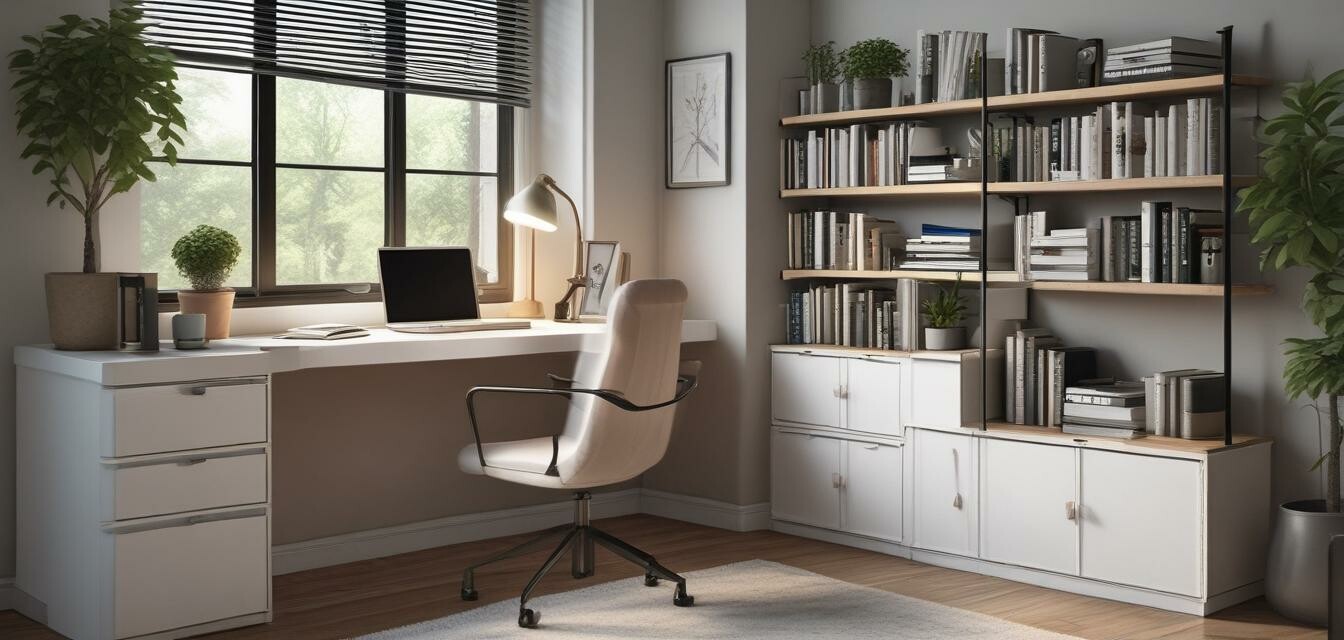
How to Create a Productive Study Space at Home
- Choose a quiet area with minimal distractions for your study space.
- Invest in ergonomic furniture for comfort and better posture.
- Provide adequate lighting to enhance focus and reduce eye strain.
- Personalize your workspace with motivational decor and greenery.
- Organize your space effectively to promote efficiency and productivity.
Creating a productive study space at home is crucial, especially in our fast-paced world. Whether you're a student, a professional seeking to learn new skills, or simply looking to designate an area for focused work, transforming a corner of your home into a dedicated study space can enhance your learning experience.
Choosing the Right Location
Finding the right spot in your home is the first step in creating your study space. Here are some points to consider:
- Look for a quiet area: The less traffic in and out, the better your focus will be.
- Avoid distractions: Keep your study space away from televisions and high-traffic areas.
- Consider natural light: Natural lighting can help maintain energy levels and improve mood.
Essential Furniture for Your Study Space
Understanding the furniture you need can make a huge difference in productivity. Below are crucial furniture pieces for your study area:
| Furniture | Benefits |
|---|---|
| Ergonomic Chair | Supports good posture for long study sessions. |
| Study Desk | Provides ample space to work comfortably and stay organized. |
| Bookcase | Keeps materials and resources organized and easily accessible. |
| Desk Lamp | Illuminates your workspace preventing eye strain. |
Lighting Your Study Space
Lighting plays a vital role in maintaining focus and comfort. Consider these lighting tips:
- Natural light is best: Position your desk near a window if possible.
- Use task lighting: A good desk lamp should provide focused light without glare.
- Opt for warmer bulbs: These can create a calm atmosphere that aids concentration.
Personalizing Your Space
Making your study space reflect your personality can enhance your creativity and motivation. Here are ideas for personalizing your workspace:
- Add plants: Incorporate greenery for a refreshing element and improved air quality.
- Photos or artwork: Surround yourself with items that inspire you.
- Motivational quotes: Display quotes that encourage you to stay productive.
Organization Hacks for Efficiency
An organized desk can help you stay focused. Here are organization tools and tips:
- Use drawer organizers to keep stationery neat.
- Consider file organizers for papers and notes.
- Regularly declutter: Spend a few minutes at the end of each week to tidy up your desk.
Creating Study Routines
Having a structured study routine can significantly improve your focus. Here are some tips:
- Set specific study hours to create a habit.
- Use the Pomodoro Technique: Study for 25 minutes, then take a 5-minute break.
- Limit social media during study time.
Pros
- Increased productivity through a structured environment.
- Comfortable seating promotes better focus.
- Personalized decor can motivate you during study sessions.
Cons
- Setting up may require an initial investment.
- It can be challenging to maintain organization if not regularly managed.
Tips for Beginners
If you're new to creating study spaces, start small:
- Begin with a laptop and a small table until you're ready to upgrade.
- Choose a single motivational item to create a focal point.
- Experiment with different layouts to find what works best.
Conclusion
By integrating these elements, turning a corner of your home into a dedicated study space can significantly enhance your focus and learning potential. For further reading on related topics, check out our other articles in the Tips and Inspiration category. Also, explore additional resources on office desks, ergonomic chairs, and bookcases & shelving. Start creating that ideal environment that supports your study goals today!